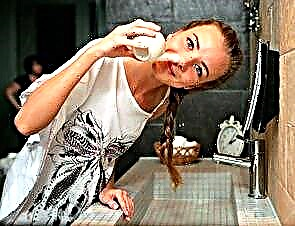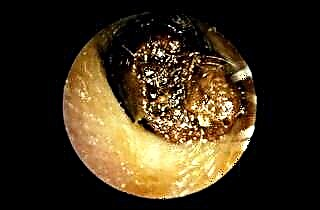It is known that the protective functions of a small child's body are not yet fully formed, so the immune system cannot provide full protection against the effects of pathogenic microorganisms. Of course, any parent wants to minimize the likelihood of developing various diseases in children, trying to strengthen the child's body from birth by fortified food, hardening, vaccination. However, it is impossible to avoid diseases, and even the most hardened baby will sooner or later face snot. And then the parents are faced with the problem of whether it is possible to bathe the child with a cold. The answer to this question is ambiguous and will depend on many different factors.
Rhinitis causes
It is often difficult to determine the cause of the common cold, especially if there are no other accompanying symptoms. In this case, rhinitis in a child can result from:
Hypothermia
 So, if a child was not dressed for the weather in the cold season, came home from a walk with wet feet, or was in a draft for a long time, then often mucous discharge from the nose can appear as a result of hypothermia. In this case, when the first symptoms of a cold occur, you can bathe the child, especially if the procedure is carried out according to all the rules.
So, if a child was not dressed for the weather in the cold season, came home from a walk with wet feet, or was in a draft for a long time, then often mucous discharge from the nose can appear as a result of hypothermia. In this case, when the first symptoms of a cold occur, you can bathe the child, especially if the procedure is carried out according to all the rules.
Infections
When a runny nose appears under the influence of pathogenic microorganisms (viruses or bacteria), most often the disease will be accompanied by other characteristic symptoms, such as redness of the mucous throat, sneezing, coughing, fever. In this situation, the decision on whether it is possible to bathe a child with a runny nose should be made by the parents together with the doctor, based on an analysis of the general condition of the patient.
Allergies
Since the immunity in children is not yet fully formed, often the baby's body will react incorrectly to external stimuli, provoking the development of allergic reactions. In this case, allergies can begin suddenly, under the influence of various factors, such as dust, pet hair, pollen, food, odors. In this case, water procedures will be shown in order to moisturize and cleanse the nasopharyngeal mucosa from allergens.
Physiological features
Often in young children, liquid transparent nasal discharge can appear as a result of the natural adaptation process of a fragile body to new conditions. This condition of the nose is normal and is easily tolerated by children without fever and other symptoms. Therefore, parents can safely atone for a child with snot without fear of possible complications.
Bathing features
Many parents believe that any hygiene procedures associated with bathing a baby during a runny nose are prohibited, as they contribute to a deterioration in well-being and increase the likelihood of complications. However, most often you can swim, the main thing is to know the features of this procedure in the presence of mucous discharge from the nose.
Important! The main contraindication to taking warm baths is hyperthermia (increased body temperature).
If the body temperature is at the physiological level, then it is not necessary to cancel the water procedures, because with a cold, increased sweating is often observed and cleansing of the skin will be necessary.
So, before you start bathing, you need to do a few simple manipulations:
- determine the temperature of the child;
- determine the temperature of the water, which should be two to three degrees higher than the usual temperature for swimming;
- there should be no drafts during the procedure;
- a large difference between the air temperature in the bathroom and the room, where the child will end up, is unacceptable;
- after bathing, you need to wipe the baby dry, put on warm clothes and be sure to wear slippers or socks to avoid hypothermia;
- if there is no extreme need, then in the presence of mucous nasal discharge, it is better to refuse to wash the child's head, or try to quickly dry the hair with a hairdryer, since wet and cold hair on the head with a possible runny nose can aggravate the symptoms and aggravate the general condition;
- during a cold and as a preventive measure, decoctions of medicinal plants, sea or table salt, special children's bathing products can be added to the water, the main thing is to make sure that there are no allergic reactions to various components.
Healing bath recipes
Sea salt. For taking a bath for children, it is better to opt for special salt without adding dyes and aromas with extracts of medicinal herbs. Salt must be well dissolved in warm water immediately before taking a bath, at the rate of half a kilogram of salt for a regular bath. During hygiene procedures, the child will inhale healing vapors that reduce inflammation and have an antibacterial effect. Also, a spray of salt solution will enter the nasal passages, causing reflex sneezing and clearing the nasal passages of mucous secretions.
During hygiene procedures, the child will inhale healing vapors that reduce inflammation and have an antibacterial effect. Also, a spray of salt solution will enter the nasal passages, causing reflex sneezing and clearing the nasal passages of mucous secretions.
Decoctions of medicinal plants should be added to the water just before bathing. The vapors inhaled during the procedure will have a positive effect and speed up recovery. For this purpose, a decoction of chamomile, sage, string and calendula is used, after brewing and filtering the medicinal collection (a glass of dry matter per liter of water).
Contraindications
If there is no temperature, and a decision was made about the need for bathing the child, then you should know some contraindications.
So, immediately before taking a bath, it is prohibited to give:
- any medications;
- a lot of liquid;
- food.
Eating, drinking plenty of fluids, and taking medications can make you feel nauseous when swimming, especially when playing actively. The situation is similar with food intake, it is better to feed the child after the procedure.
Also, for the duration of a runny nose, it is better to refrain from going to the pool, bathhouse, to open water bodies. The thing is that:
- in the presence of a viral infection, the patient can infect the people around him through the water;
- also prolonged bathing and swimming can aggravate the condition, putting additional stress on the weakened body and respiratory system;
- warming up in the bath is also better to postpone until the moment of recovery. Even if a runny nose has arisen for physiological reasons or is caused by allergies, severe overheating and sudden changes in air temperature can cause a large number of complications and, instead of the expected benefit, only harm.
Now, knowing the peculiarities of bathing a child with a runny nose, parents can determine the appropriateness of this procedure, and also make sure that taking a bath is only beneficial.



